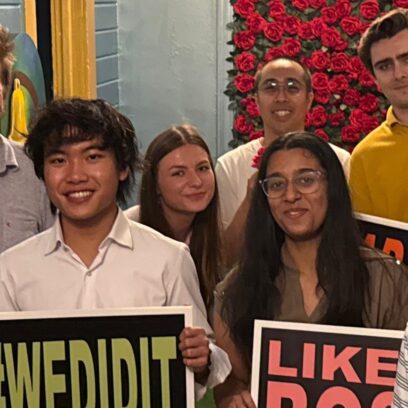Climate Week NYC 2024: What We Learned and Why It Matters
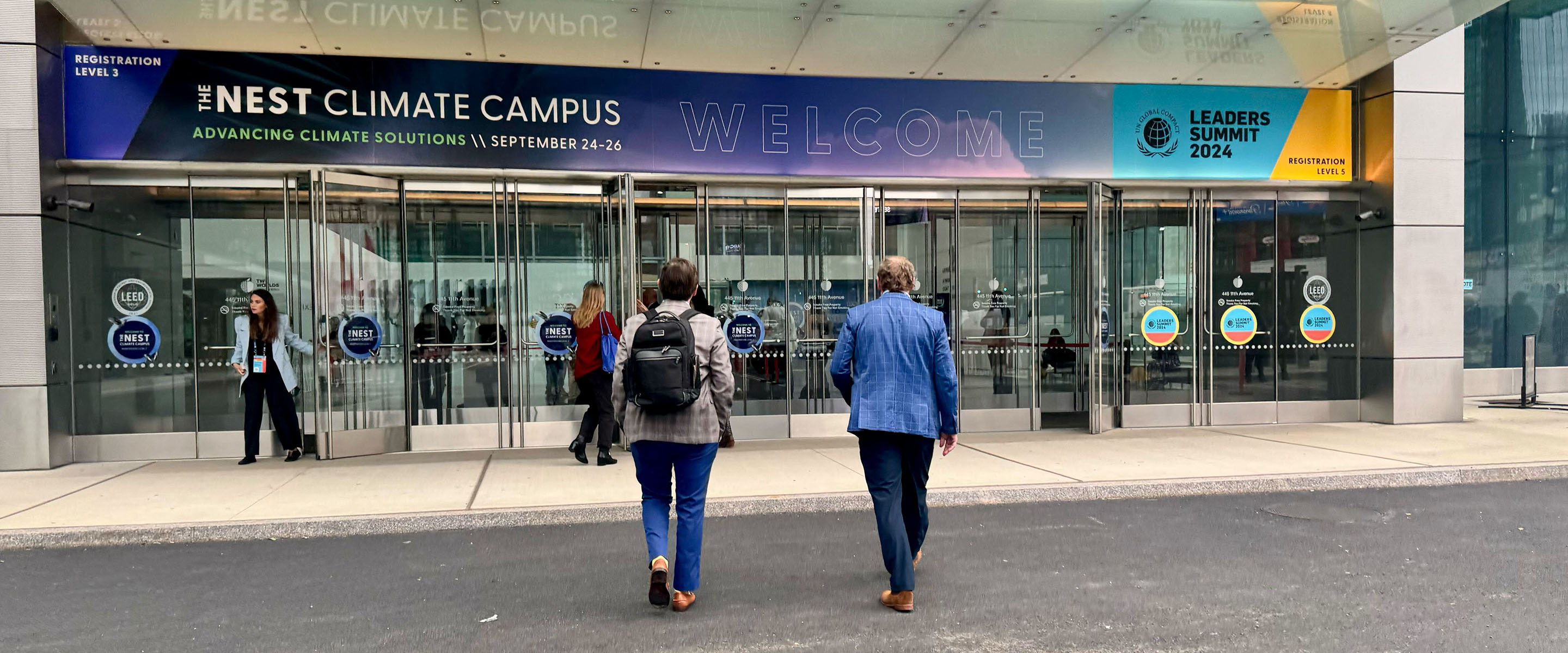

🌍 Carbon markets can feel overwhelming—fragmented data, limited transparency, and conflicting advice make it hard to know where to start. In this webinar, our experts give a clear, practical introduction to the VCM.

As climate-related disclosure and mitigation requirements continue to evolve, understanding the latest regulatory landscape is essential for US companies. In this webinar, we cut through the jargon to provide clear insights into emerging climate-related requirements, breaking down two key federal proposals and one EU regulation impacting some US-based companies. Join us to stay informed and prepared for what’s ahead in climate compliance.
Achieving net-zero requires bold leadership, innovative policymaking, and rapid scaling of carbon removal solutions.
Climate Week NYC 2024 was a powerful convergence of thought leaders across industries, policymakers, businesses, and climate advocates, all driven by the theme “It’s Time.” This year’s message felt especially urgent, with the entire cohort focusing on immediate, actionable solutions to address the climate crisis. The CarbonBetter team was excited to be on the ground once again, dividing and conquering panels, engaging in debates and discussions, and bringing back key insights from the week’s events. The atmosphere of the citywide event was more charged than in prior years, shifting away from talking about future solutions to pushing for real change now.
Throughout the week, our team explored a wide range of topics—from the transformation of hard-to-abate industries to integrating artificial intelligence (AI) in sustainability efforts and the ever-evolving voluntary carbon markets. Below, we share our team’s takeaways, highlighting the most compelling themes, challenges, and opportunities discussed during Climate Week NYC.
The need for urgent climate action is greater than ever.
The theme of this year’s Climate Week NYC was “It’s Time,” and the undertone and atmosphere of the city and the citywide event this year contrasted a bit from prior years in a refreshing way. The ambience of this year’s events was much more urgent and demanded effective, immediate change versus talking about climate change in the future tense. The common keywords at many events were “now” and “answers/solutions.” – Case in point: all Solutions House events this year were held in a Chelsea conference room with highly eye-catching banners with the large, bold words “ANSWERS ONLY” covering all its walls.
One memorable moment came from Dr. Katherine Calvin, NASA Chief Scientist and Senior Climate Advisor, who emphasized, “2023 was the hottest year on record, and we’ve had 12 consecutive record-breaking months of heat.” For many, this is a resounding call to collective responsibility and immediate action for current and future generations.
Companies are feeling the pressure to move beyond ambitious targets and take immediate, tangible action. There was a strong focus on implementing real solutions today, particularly around energy efficiency, methane reduction, and sustainable food systems. Scaling climate finance and innovation to meet global net-zero commitments was a key theme throughout the week. One of the highlights was The Reassembly, curated by Katie Hoffman and the team at Regeneration VC, a climate-tech-focused venture capital firm with Leonardo DiCaprio as an investor. Rainn Wilson (character Dwight from The Office) summed up the scope of Climate Week for the crowd: “Some of you here are working on carbon sequestration, some of you are working on bacteria that eat plastic, some of you are working on renewable resources, some of you are seeking to pass legislation… It’s so all-encompassing, with so many facets; it’s staggering, and they are all incredibly important.”
This urgency is not limited to public discourse; it’s also driving corporate actions, particularly through voluntary carbon markets (VCMs).
A growing need for corporate action to support efforts in increasing transparency and integrity in Voluntary Carbon Markets.
As one of the most significant events in the carbon market calendar this year, Climate Week NYC brought attention to the role of carbon credits in decarbonization efforts. Throughout the week, many voices emphasized that carbon credit markets must complement, not replace, direct decarbonization efforts. These markets serve as essential tools for offsetting emissions that cannot yet be eliminated. Improving transparency and integrity in these markets is critical.
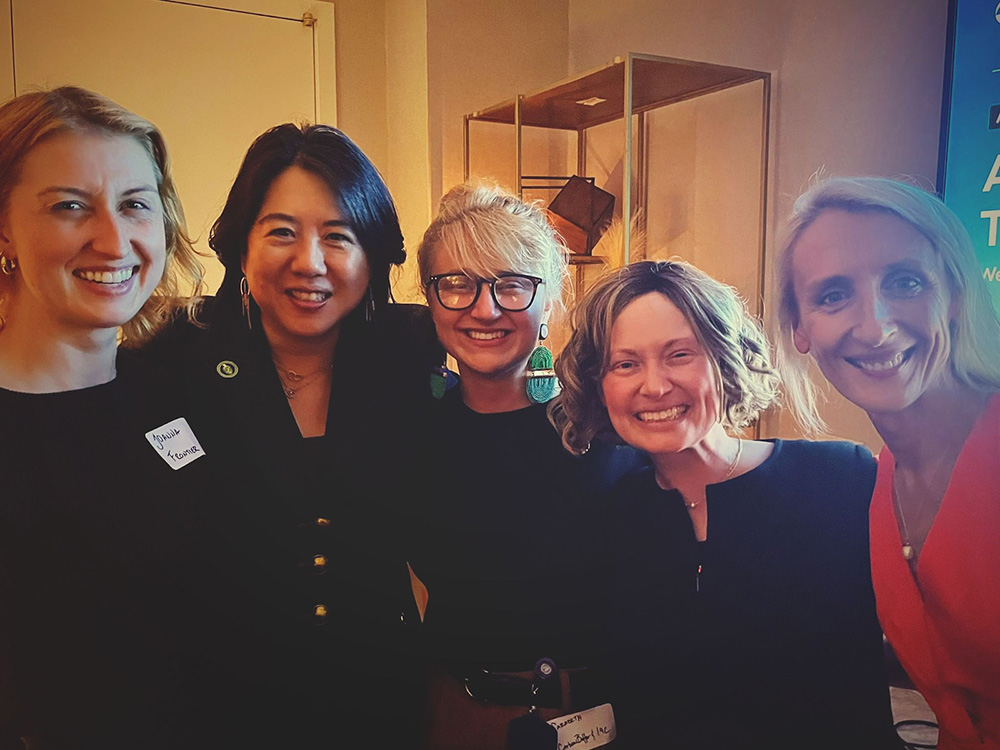
Joanna Klitzke (Stripe/Frontier), Vanessa Chan (CCO of OTT at the US DOE), Sarabeth Brockley (former Senior Director of Climate Services at CarbonBetter), a Senior DOE employee, and Lelia Toplic (CCO, Carbon Futures)
While organizations like the Integrity Council for the Voluntary Carbon Market (ICVCM) and Voluntary Carbon Markets Integrity Initiative (VCMI) are reinforcing the transparency and integrity of VCMs, broader corporate action beyond major players is needed to scale these markets effectively. The carbon dioxide removal (CDR) summit by Puro.earth brought together industry leaders who shared strategies for driving enhanced market participation, shaping policy, and supporting project development to achieve global sustainability goals.
Financing and developing clean energy and industrial decarbonization are key to meeting climate and corporate goals.
NYCW Dinner
During their annual NYCW dinner, Carbonfuture, Carbon Business Council, and NextGen CDR brought together corporate sustainability leaders, policymakers, and innovators to address one of the biggest challenges of our time—achieving net-zero and the urgent need to drive participation in the Voluntary Carbon Market. They drove home the focus by asking: How can corporate leadership, government policy, and innovation drive the scaling of carbon removal? The room was full of corporate leaders from companies like Mitsubishi Corporation, J.P. Morgan, Citi, AIG, Prudential Financial, Liberty Mutual Insurance, BMO, Aflac, and MetLife, passionately engaging in discussions, creating an incredibly energetic atmosphere.
Carbon Newbie Summit
CarbonBetter was lucky to have Sarabeth Brockley, former Senior Director of Climate Services, share the stage with the ever-resonant and informative Carbon Newbie Summit. The day convened notables like Mastercard, Allbirds, Lime, and Mubadala around all levels of carbon management. CarbonBetter led the panel discussion targeting new corporate buyers with Sarabeth Brockley, Ted Christie-Miller (BeZero Carbon), and Meghan Edge (Ripple), discussing the urgency and feasibility of carbon projects with near-term returns. CarbonBetter customers are excited by and benefit immediately from the diverse, robust Certified Carbon Offset Portfolios.
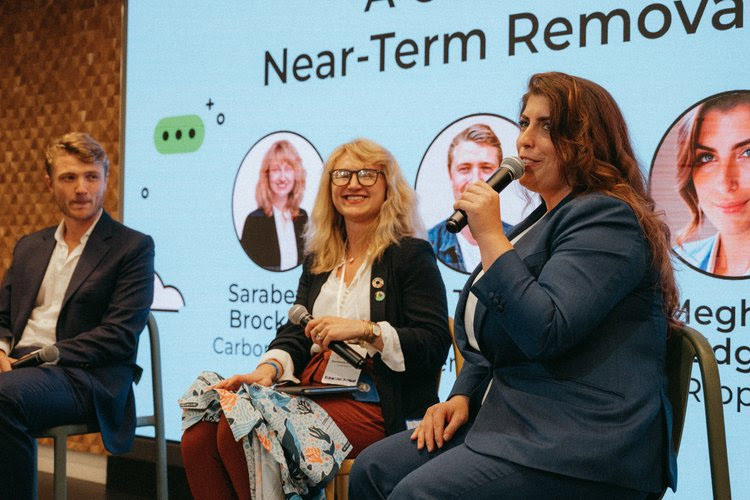
Sarabeth Brockley, former Senior Director of Climate Services at CarbonBetter, and Ted Christie-Miller (BeZero Carbon),and Meghan Edge (Ripple)
At the Carbon Newbie Summit, several influential speakers provided key insights into carbon accounting, markets, and managing climate risk:
- Sudhanshu Mathur of the Environmental Defense Fund discussed the critical role of methane reduction, highlighting that methane’s global warming potential (GWP) is 27-30 times stronger than carbon dioxide. Mathur introduced MethaneSAT—the first satellite launched by a nonprofit, aimed at tracking methane pollution in the oil and gas industry.
- Kathy Kearns of CEEZER addressed the importance of navigating risks in the carbon credits market, advocating for transparent and reliable practices.
- Brad Rochlin of Cascade Climate emphasized the science and importance of carbon removal as a critical piece of climate mitigation.
At CarbonBetter, we believe in a “TRY ALL OPTIONS” approach to scaling carbon removal to the gigatons required. Throughout Climate Week, we encountered many who were uncertain about the role of carbon removal in the decarbonization puzzle. The answer is clear: to reach net-zero, we need deep emissions cuts alongside scalable carbon removal—and we need to act now on both. Beyond VCMs, corporations are addressing emissions throughout their value chains, with a growing focus on Scope 3 reductions.
“2023 was the hottest year on record, and we’ve had 12 consecutive record-breaking months of heat.”
Dr. Katherine Calvin, NASA Chief Scientist and Senior Climate Advisor
Skip the RFP—CarbonBetter can help
CarbonBetter Certified Offset Portfolios allow carbon buyers to participate in a variety of projects, geographies, and technologies in one simple transaction rather than navigating a lengthy and complex RFP process with multiple carbon market participants.
Learn More about CBCO 22-1Scope 3 emissions and clean energy transitions remain top priorities.
The need to measure and mitigate Scope 3 emissions—those indirect emissions that occur across a company’s value chain—was underscored by the ongoing implementation of regulations like CBAM (Carbon Border Adjustment Mechanism) and CSRD (Corporate Sustainability Reporting Directive). Corporations are seeking innovative ways to partner with suppliers and trade associations to reduce these emissions. At Hearstlab’s panel, participants explored practical strategies for Scope 3 reductions across food and beverage (F&B), retail, technology, and fashion sectors, while acknowledging the vital role of VCMs in supporting these goals amidst increasing scrutiny around SBTi (Science-Based Targets initiative) constraints.
Discussions throughout the week also highlighted the transition to clean energy, with an "all sources" mentality focusing on both clean baseload (geothermal, nuclear) and renewable energy (solar, wind). There was a consensus on the need to triple renewable energy capacity and double energy efficiency by 2030 to meet global climate goals. This shift in the conversation from "What is important to solve?" to "How do we solve this together?" emphasizes the need for partnerships and cooperation across industries. CarbonBetter looks forward to announcing projects under development from conversations that started in NYC.
Technology is an indispensable ally in these efforts, with artificial intelligence (AI) playing an increasingly critical role in optimizing sustainability across industries.
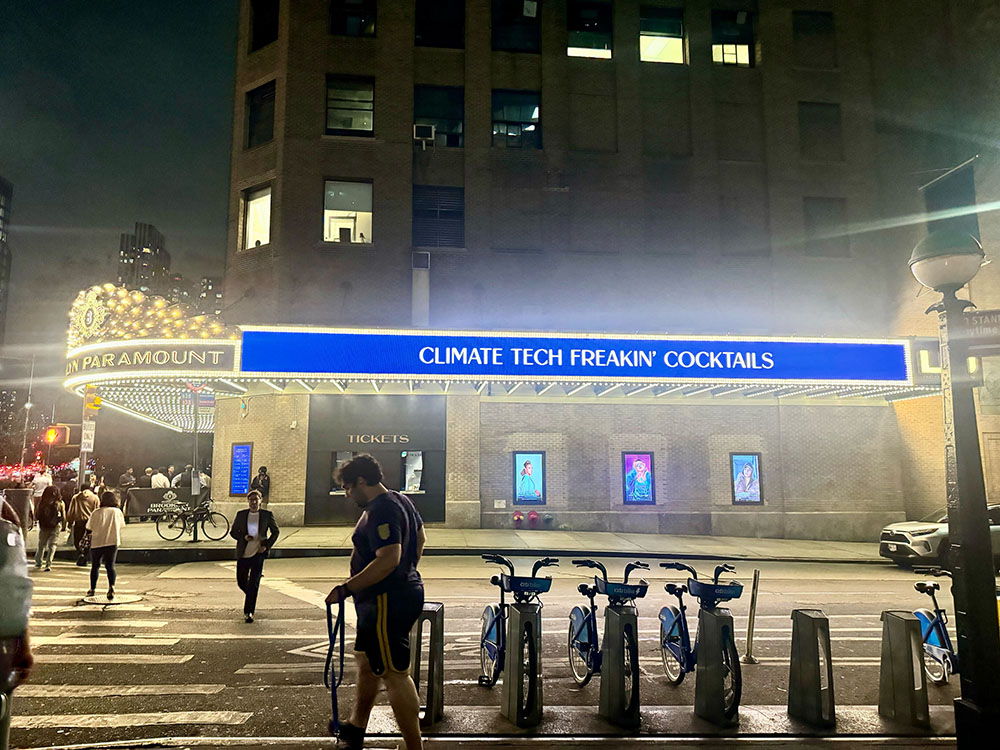
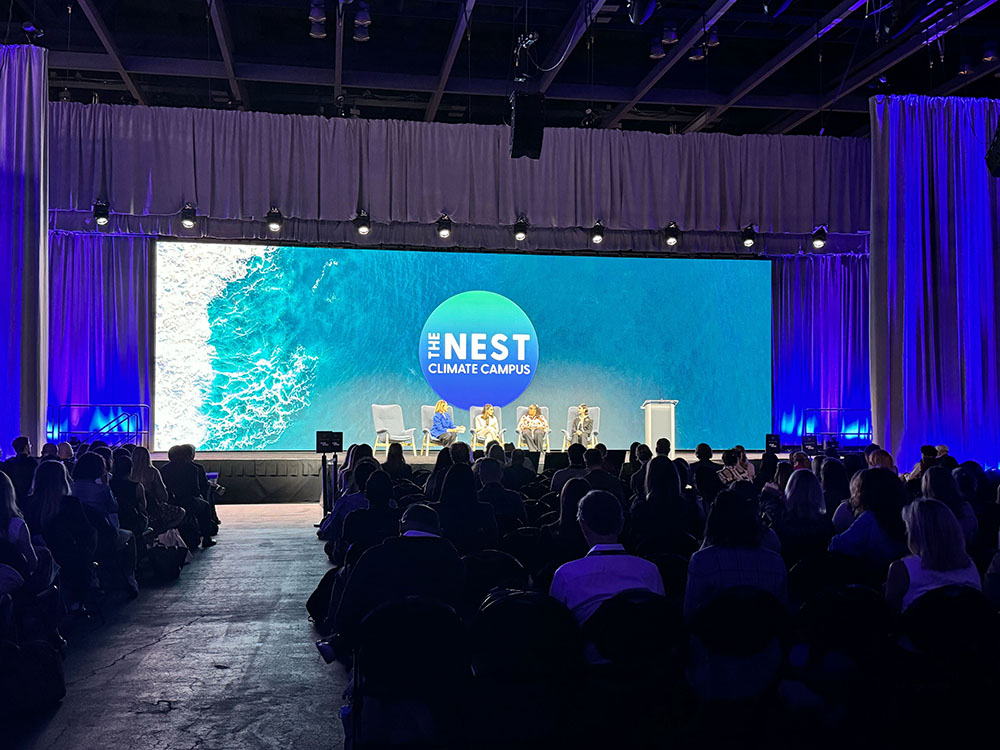
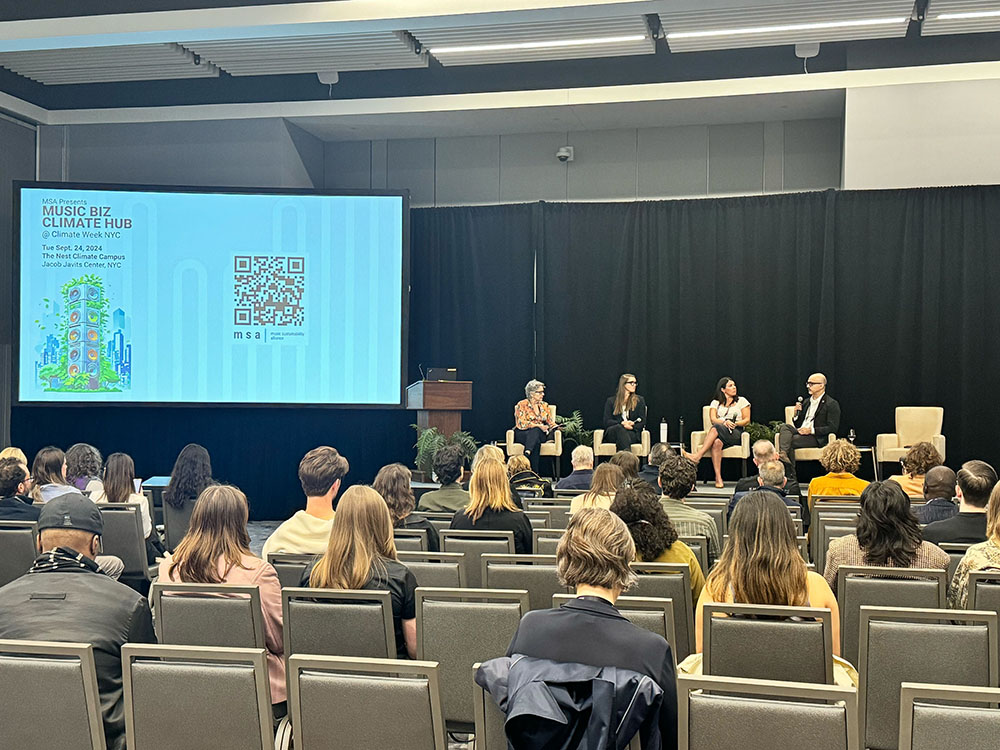

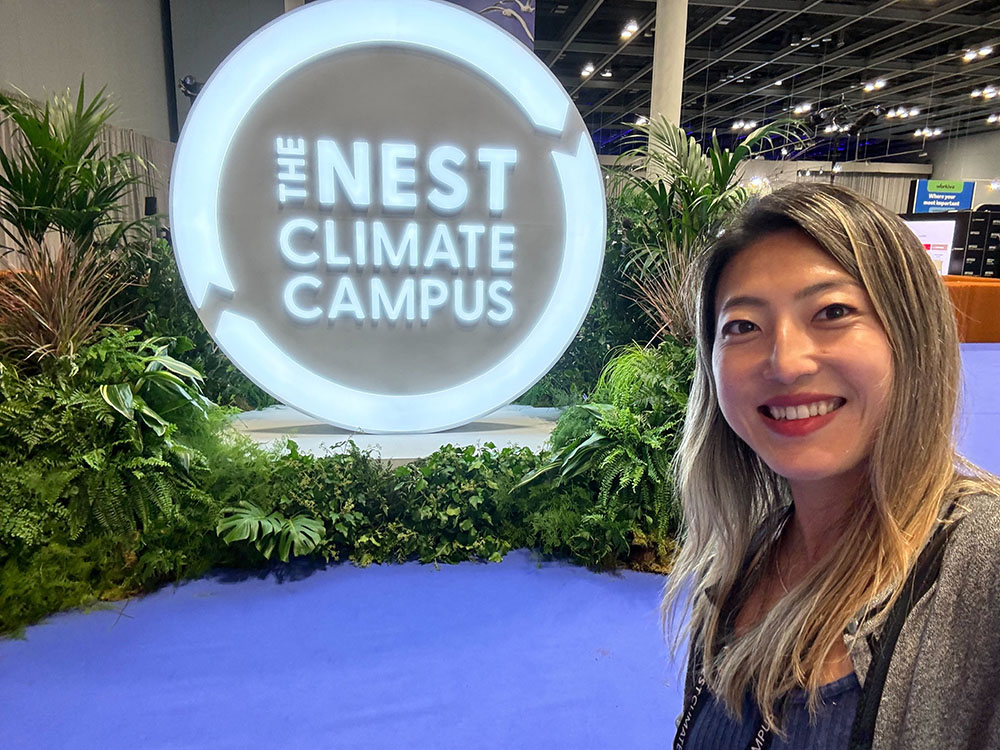

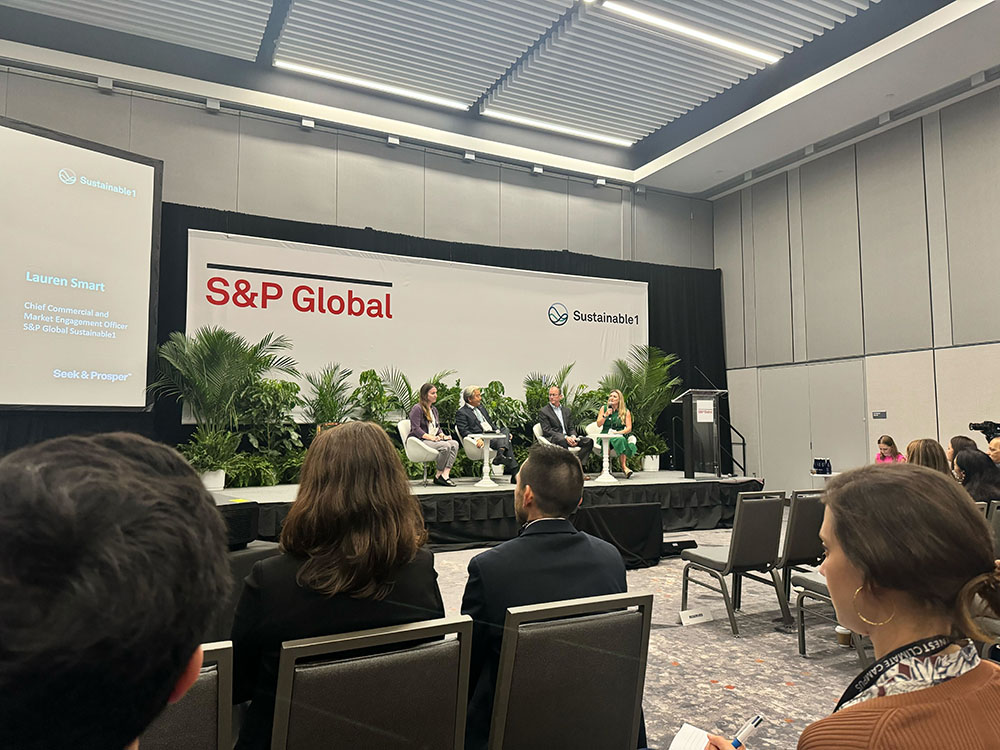

AI is rapidly expanding its role in sustainability across industries.
The rapid expansion of AI in sustainability was another key theme. Regen House led numerous events focused on AI in agriculture highlighting AI-trained robots being deployed to de-weed farms, reducing chemical usage, while IoT (Internet of Things) devices support regenerative farming practices. Discussions also touched on AI’s role in retail—specifically in product assortment optimization—to balance customer preference, profit, and carbon footprint, emphasizing the need for life cycle assessments (LCAs) in product portfolios to enable AI-enabled decision-making. Beyond technological advancements, collaboration among stakeholders is key to driving climate solutions.
Collaboration is key to advancing climate solutions.
Open dialogue and cooperation were hallmarks of this year’s Climate Week NYC, where stakeholders from business leaders, sustainability authorities, policymakers, local decision-makers, and civil society representatives came together to share what specific steps they’ve taken, best practices, and ways to align and work together to speed up progress. Everyone held each other accountable, and there was a strong sense of candidness about challenges and vulnerabilities, which facilitated a productive dialogue about solutions. This spirit of collaboration was embodied by partnerships like The Climate Pledge, Music Sustainability Alliance, and Solutions House – a few of many that were formed or strengthened this year.
Conclusion
Climate Week NYC 2024 was a call to immediate action, echoing the urgency of our climate reality. From conversations on Scope 3 emissions and just transitions to innovations in AI for sustainable agriculture, this year's event showcased the breadth of opportunities available to accelerate climate action. As CarbonBetter continues to support businesses and organizations on their sustainability journeys, we are motivated by the emphasis on partnership, solutions, and transparency that were at the forefront of Climate Week NYC this year. Now is indeed the time to transform insights into action, and we look forward to driving meaningful change alongside our clients and partners.
Need help? No matter where you are in your sustainability journey, we're here to help. Contact us today to learn more.
The theme was "It's Time," emphasizing the urgency of climate action and the need for immediate solutions.
Hard-to-abate industries like steel, concrete, agriculture, and aviation were focal points, with discussions on decarbonization and innovation within these sectors.
AI technologies are being used to support regenerative farming, streamline retail product assortments, and reduce carbon footprints, demonstrating a growing presence in sustainability practices.
Companies are focusing on quantifying and mitigating Scope 3 emissions through partnerships, supply chain engagement, and exploring the role of voluntary carbon markets in supporting reductions.
VCMs are key for offsetting emissions and meeting global sustainability goals, and there’s a need for more corporate participation to ensure market transparency and integrity.

About the Author
Della Jung is Director on CarbonBetter’s sustainability, decarbonization, and climate division. She brings extensive experience in private equity and infrastructure investing, fund operations, climate and sustainability strategy to help deliver effective solutions inclusive of both financial results and social impact for her clients. Based in Washington, D.C., Della holds a BA in Government from Dartmouth College.

About the Author
Pankaj Tanwar is Managing Director of Climate Services at CarbonBetter. He has experience leading Fortune 100 companies through their sustainability journeys, including sustainability driven growth in the food industry. Pankaj holds an MBA from Northwestern University’s Kellogg School of Management and a BTech in Mechanical Engineering from the Indian Institute of Technology, Kanpur.

